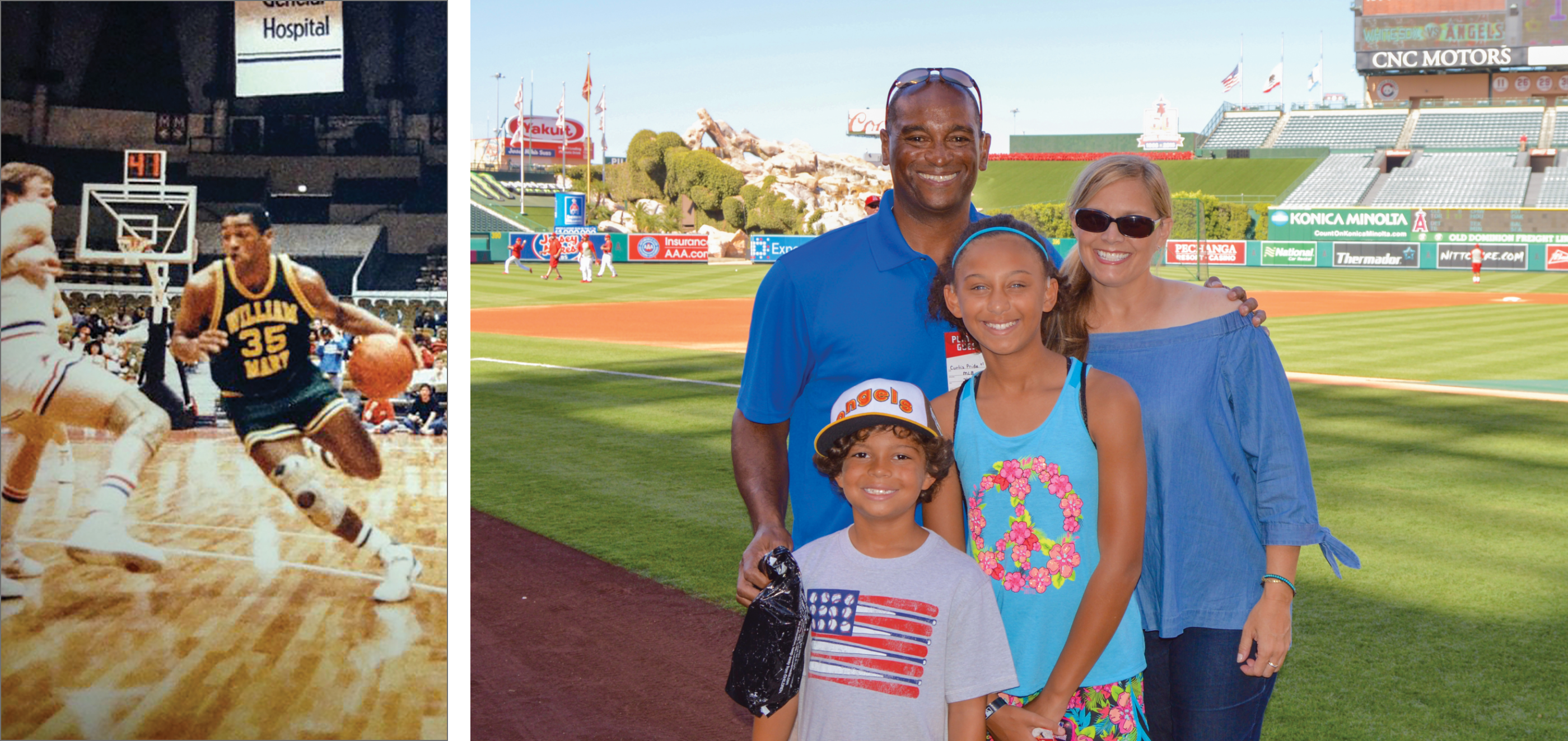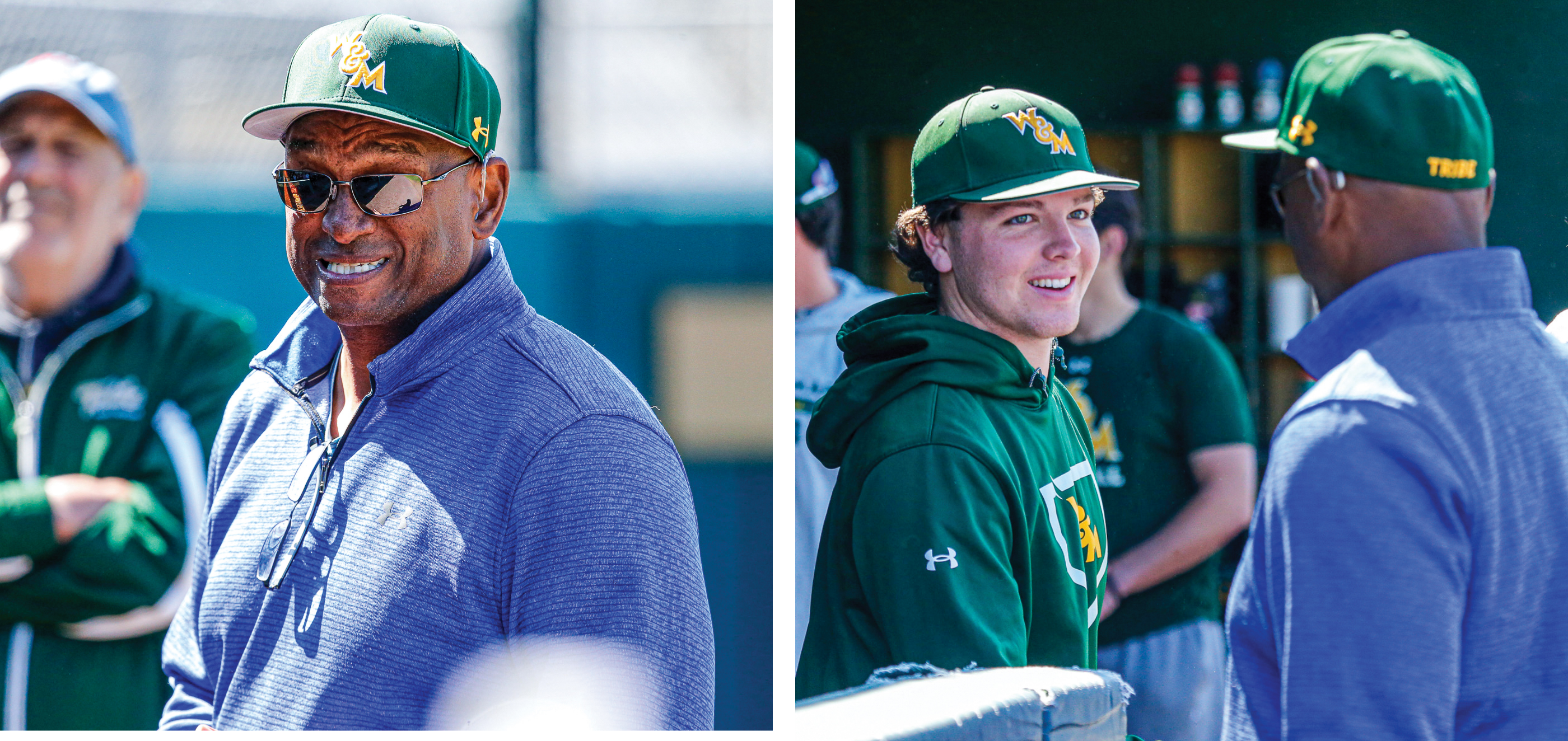As a multisport athlete in high school, Curtis Pride ’90 was offered a full soccer scholarship by Georgetown University and the University of Virginia, as well as a guaranteed spot on the basketball teams at both top-notch hoop programs. The Washington, D.C., native also had the opportunity to play soccer and basketball at the University of Pennsylvania — all this after also starring in baseball at John F. Kennedy High School in suburban Silver Spring, Maryland.
“He was a natural, way ahead of his time. I don’t think I saw a young player as advanced other than Juan Soto,” veteran baseball scout Mike Toomey says of Pride, comparing him to the outfielder who recently signed a historic contract with the New York Mets. But Pride decided to accept a full basketball scholarship to William & Mary.
“I felt totally at home when I visited the campus as a recruit,” Pride says. “I liked the fact that I had a chance to play a lot right away as a freshman and get a quality education from one of the top academic schools in the country. In addition, it certainly did not hurt that William & Mary is one of the most beautiful campuses in the country.”
Pride, who is 90% deaf, started 20 of 27 games as a freshman on the basketball team. He played in 94 contests over four years for the Tribe and scored more than 500 points in his career from 1986-90. But defense was the finance major’s forte.
“He was the best on-ball defender I have had in 40 years of coaching at the college level,” says Darrell Brooks, a former Tribe assistant coach who is now the head coach at Division II Bowie State University in Maryland.
“He was strong, quick and fast,” says former pro hoopster and William & Mary head coach Barry Parkhill, who now works in athletics at the University of Virginia. Pride once played against Michael Jordan in a pickup game and hit a game-winning shot.

